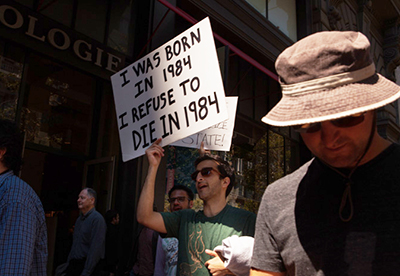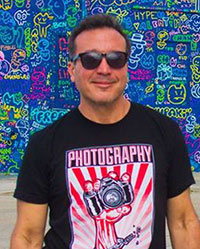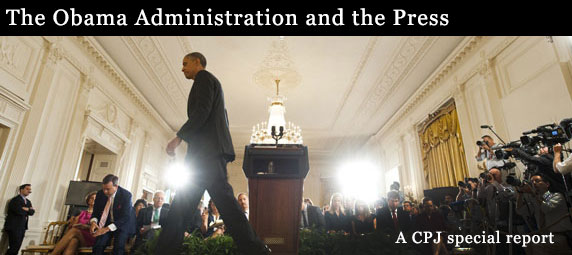CPJ troubled by report GCHQ targeted journalists
San Francisco, February 7, 2014–The Committee to Protect Journalists is deeply troubled by a report that a potential operation by the British intelligence agency Government Communications Headquarters (GCHQ) involved covert surveillance of reporters’ communications. GCHQ sought to use journalists to pass both information and disinformation to intelligence targets, according to documents taken from the National…

Obama must chart clearer course on surveillance policy
Tonight President Obama has another opportunity to redirect the country’s out-of-control surveillance programs during his annual State of the Union address. He should seize it. The president’s much-anticipated January 17 speech about U.S. surveillance policy, which came in response to outrage over National Security Agency spying, left much unsaid–and many of the commitments he did…

Obama’s legacy on the line with surveillance policy
When President Obama takes the lectern to discuss U.S. surveillance policy, as he is expected to do Friday, those hoping for sweeping reform are likely to be disappointed. As reported in The New York Times, the president appears poised to reject many of the recommendations of his Review Group on Intelligence and Communications Technologies, a…
While tech companies call for spying reform, telcos silent
On Monday, eight of the world’s leading technology companies set aside their rivalries to issue a direct challenge to U.S. lawmakers: lead the world by example and fix America’s broken surveillance state. Although the tech companies’ statement sends a powerful message, notably absent from the letter’s signatories is the appearance of a single telecommunications company,…
Take this survey on digital safety, then take these steps
It is an extraordinarily difficult time to be a journalist. Nearly every month, the digital security landscape shifts–new surveillance concerns are unearthed and freshly drafted laws are introduced that seek to curb freedom of expression under the guise of national security.
British journalists concerned by regulation, hostile climate
As Alan Rusbridger appears Tuesday before the Home Affairs committee of the U.K. Parliament to give evidence regarding the Guardian’s coverage of surveillance activities by the U.S. and U.K. governments, British journalists and analysts say that newspaper’s legal troubles are worrying in large part because they come against the backdrop of increased regulation and scrutiny…

Journalist faced prison for posting media relations number
Carlos Miller is not one to back down. As the founder and publisher of Photography is Not a Crime, a leading blog about free speech and press rights in the U.S., Miller has made it his mission to publicize examples of government overreach and the suppression of journalists’ and other newsgatherers’ rights. And although he…
Censorship in Alabama’s Shelby County
Before his staffers, under government duress, took power drills and angle grinders to destroy company Macbooks in the newspaper’s basement, Guardian editor Alan Rusbridger made sure to send Edward Snowden’s leaked documents to New York newsrooms for safekeeping.

News from the Committee to Protect Journalists, October 2013
CPJ launches US report Following CPJ’s release of its report on the state of press freedom in the United States, the organization is pursuing high-level meetings with the White House. CPJ had drafted six recommendations that were shared with President Obama, including calling for a guarantee that journalists would not be at legal risk or…
Greenwald wants to return to US, but not yet
Glenn Greenwald would like to go home to the United States, at least for a visit. But the Guardian journalist and blogger is afraid to do so. He still has material and unpublished stories from his contacts with fugitive whistleblower Edward Snowden that he believes U.S. authorities would love to get their hands on. The…